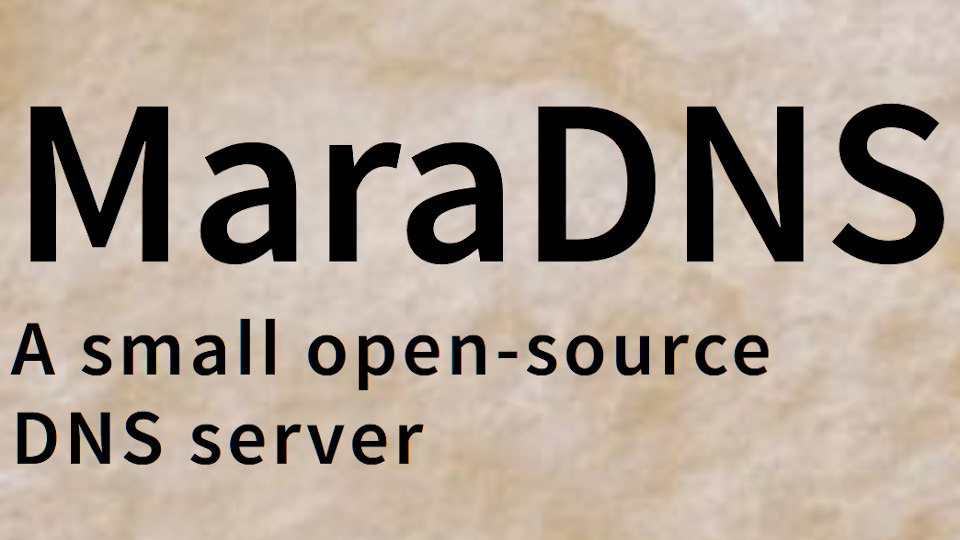
==MaraDNS now includes Lua support==
Recently, someone expressed interest in having me compile microdns, a simple DNS server which always returns the same IP, regardless of the query sent to it, for Windows. While I did not do that—microdns does not run as a Windows service, and it handles EDNS packets poorly—I have been thinking about how to offer “always give out the same IP” for Windows users.
As part of my work becoming familiar with Lua, after making a Lua library which can be called from C, I thought of this request when thinking of a C program which I could interface with Lua. And that is how mmLunacyDNS was born.
The name is “mm” for “micro”; “Lunacy” is the name of my branch of Lua 5.1 used, and “DNS” is “domain name system”, the network protocol this program implements.
Fans of the Lua language are well aware that Lua 5.4 has recently come out, so why are we using an eight-year-old version of Lua? Lua 5.1 is the lingua franca of Lua versions; by forcing Lua 5.1 syntax in the scripts used, this gives me more flexibility to use other implementations of Lua.
Gopher Lua for the Go programming language implements Lua 5.1. Moonsharp, a C# implementation of Lua, implements Lua 5.2. So, sticking with an older Lua release allows one to implement this server in Go or C# without the scripts the server uses having to be rewritten.
More to the point, enterprise users who may find Lua too slow can use LuaJIT, which is almost as fast as native C code while allowing one to quickly implement features with Lua 5.1 code. If I were to move to LuaJIT, there would still be no need for users to rewrite their scripts.
mmLunacyDNS is an IPv4 only DNS server which, after reading its Lua configuration file (the only configuration file it uses) to determine its IP to bind to, listens for DNS requests. Once mmLunacyDNS gets a DNS request, it calls a Lua function in the configuration file, giving the function the name requested (with hex escaping as needed to avoid injection type attacks), the IP the request came from, and what type of DNS request it is (IPv4 IP, email server, reverse DNS lookup request, IPv6 IP, etc.).
With this information, the Lua script can either tell mmLunacyDNS to ignore the request, or to return an IP specified by the Lua script.
To protect against malicious configuration files, Lua is sandboxed. While the math, string, and bit32 libraries are available, all other libraries and top level functions are not available to the script. To make up for print being gone, the Lua environment has mmDNS.log for logging information.
The Windows version of mmLunacyDNS can be started and stopped as a service. The Linux/UNIX/BSD version of mmLunacyDNS does not have daemonization support, but I have set up its interface to allow one to be implemented in the future.
And, that’s all mmLunacyDNS can do. It has no IPv6 support. It can only return a single IP per query. It can not set the TTL of replies (they always have a 0 TTL). It will not do your dishes for you either.
The other change I have made is that Deadwood’s configuration file can now accept multiline comments:
_rem={}
_rem={ #_rem --[=[
"""
We are now in a multi-line comment.
This allows a long explanation to be
in a Deadwood configuration file
""" # ]=]
}
The actual format is _rem={ at the start of a line, which begins a multi-line comment. The comment continues until a } is seen. The reason for this unusual format is that it allows a Deadwood configuration file to have multi-line comments in a form which are compatible with both Lua and Python, as can be seen in the above example.
If one is getting the impression that I’m thinking about maybe adding Lua support to Deadwood, there may be some truth to that. I will not promise anything I do not deliver, but there is a possibility that Lua would help with some use cases. For example, large block lists would take up less memory if implemented in Lua instead of the current method of placing them in Deadwood’s fast but memory inefficient DNS cache. And, Lua would solve the request I sometimes get to allow DNS names to match against regular expressions: Lua includes an entire regex library.
Did you know that all of my blog entries are available in a free to
download eBook at
https:/
